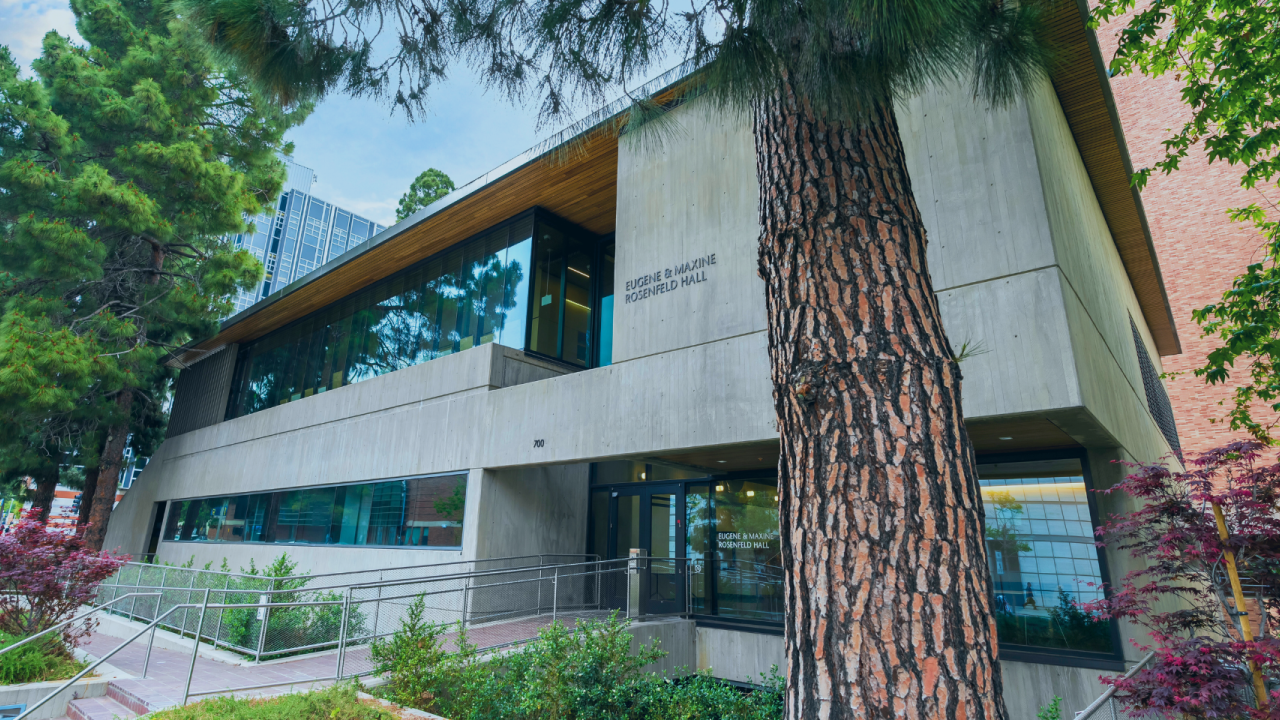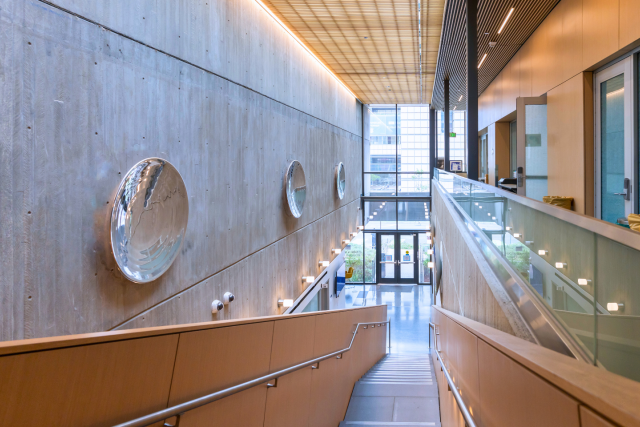Our Story
How one earthquake shifted the course of modern medicine
The 1994 Northridge earthquake devastated Los Angeles and led to a pivotal decision: UCLA would construct a replacement, disaster-proof hospital at its Center for the Health Sciences. But alongside this challenge came a visionary question:
How could operating rooms be designed to keep pace with rapidly evolving surgical technology?
The answer emerged not by trying to predict the future, but by creating it.
Embracing the philosophy of computer scientist Alan Kay—"the best way to predict the future is to invent it"—UCLA founded the Center for Advanced Surgical and Interventional Technology (CASIT). This new center would serve as a living lab for innovation, advancing surgical care through integrated research, education, and technology development.
At the time, UCLA's engineering and medical schools operated in silos, with little formal collaboration. CASIT broke that barrier, uniting experts from medicine, engineering, cognitive science, and behavioral science to reimagine the future of surgery.
Visionary leadership and support
CASIT was shaped by Dr. E. Carmack Holmes, its founding Executive Director and a highly respected surgeon whose leadership established the center’s foundational direction. His achievements earned recognition from Johns Hopkins University and the Royal College of Physicians and Surgeons of Glasgow. His vision continues to guide CASIT’s trajectory.
Institutional champions, including Drs. Alan Robinson, Gerald Levey, John Mazziotta, and David Feinberg, provided critical support. Their leadership was instrumental in prioritizing innovation and securing key funding.
Philanthropic partnerships with the Rosenfeld, Gordian, Perkins, Rothman, and Wunderman families enabled CASIT to take shape. Additional support from the U.S. Department of Defense’s Telemedicine and Advanced Technology Research Center (TATRC) helped launch major renovations and research initiatives.
Laying the groundwork

CASIT operates out of Rosenfeld Hall, a cutting-edge facility adjacent to Ronald Reagan UCLA Medical Center. A $20 million gift from Eugene and Maxine Rosenfeld made this possible, creating a centralized space for simulation training, surgical robotics, and interdisciplinary collaboration.
The Gonda Robotics Center, housed within CASIT, reflects the Gonda family’s belief that surgical training should mirror the rigor of flight simulation. This insight helped shape CASIT’s use of advanced surgical simulators that allow residents and practicing surgeons to rehearse procedures, especially rare, high-risk operations, before stepping into the operating room.
Real-world impact

CASIT’s simulation center provides an environment where surgical teams refine their skills through immersive training and detailed performance metrics. Research shows that pre-operative rehearsal significantly improves outcomes, and CASIT applies this principle across specialties to enhance precision, confidence, and patient safety.
This approach has transformed surgical education at UCLA. Since 2015, more than 200 residents have completed intensive robotic surgery training at CASIT, building the next generation of skilled surgical innovators.
Expanding access through telepresence
CASIT’s telehealth infrastructure allows UCLA surgeons to deliver clinical care and instruction remotely—including live consultation during operations. This "telepresence" capability broadens access to expertise, supports training in remote or underserved areas, and reinforces CASIT’s mission to improve care beyond traditional boundaries.
Collaborative innovation at scale
By fostering partnerships across disciplines and sectors, CASIT accelerates the development and deployment of surgical technologies. Through collaborations with UCLA's avid Geffen School of Medicine, the California Nanosystems Institute (CNSI, and leading industry partners, CASIT brings concepts from prototype to practice.
The result is a dynamic ecosystem where engineers and surgeons co-develop tools to solve real-world problems. CASIT’s contributions span research, clinical care, and education. Highlights include:
- Over 4,000 targeted biopsies that improve cancer diagnosis and treatment planning
- Pioneering use of high-resolution ultrasound and focal laser ablation for prostate cancer treatment
- Next-generation operating rooms equipped with robotic and digital technologies
- Collaborative research with AI and data science teams to improve monitoring of chronic illness and cognitive decline
- Remote surgical training and mentorship, enabled through advanced telepresence systems
Visit CASIT
What began as a response to disaster has become a global leader in surgical innovation. Today, CASIT stands as a model for interdisciplinary research, advanced clinical training, and transformative technology development.
